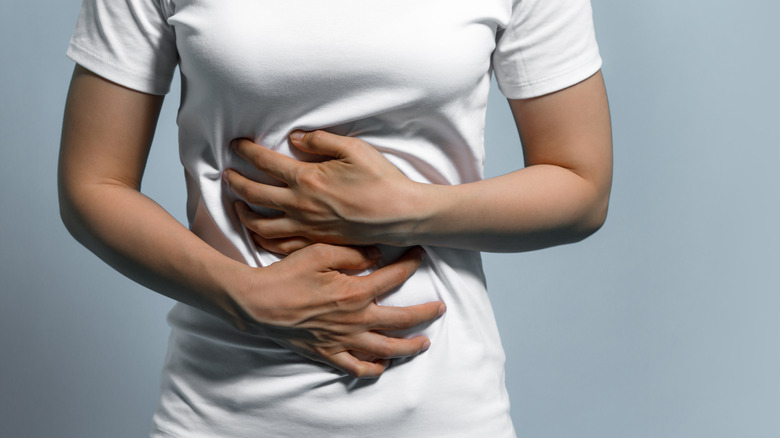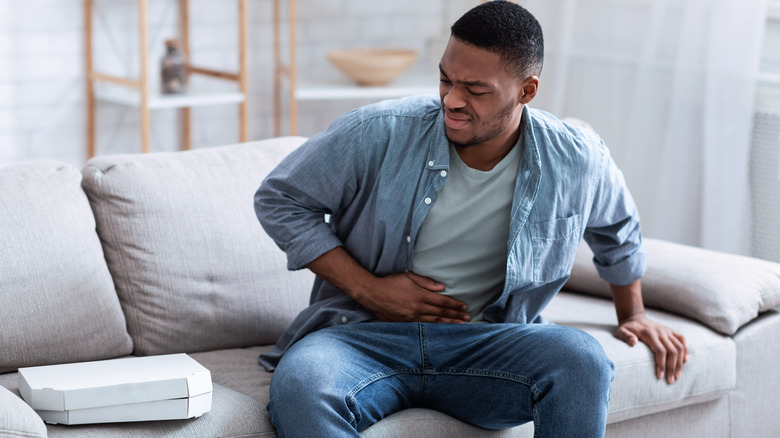What Is E. Coli?
Escherichia coli, or E. coli, is a bacteria that dwells in the intestines. According to Johns Hopkins Medicine, it's normal and healthy, and E. coli lives in other healthy mammals, too. It helps keep your gut bacteria balanced, protects against harmful bacteria, and even creates some vitamins.
However, there are hundreds of strains of E. coli. The one that usually comes to mind when this bacteria is mentioned is the one that makes you sick. The World Health Organization (WHO) backs up the claim that most E. coli strains are harmless, but there is one strain known for causing foodborne illness known as the Shiga toxin-producing E. coli or STEC for short. The primary sources of STEC — also known as food poisoning — are undercooked or raw meats, raw milk, or vegetables contaminated by fecal matter. MedlinePlus adds that you can also get this form of E. coli from accidentally swallowing contaminated swimming pool water or from unpasteurized juice as well as milk.
According to MedlinePlus, symptoms include stomach pain, nausea, vomiting, watery or bloody diarrhea, tiredness, and fever. Food poisoning from E. coli will typically go away on its own within five to ten days. However, those with compromised immune systems, including children and the elderly, can develop kidney disease. In rare cases, E.coli can be fatal.
Treatment for E. coli food poisoning and when to see a doctor
If you have severe symptoms, see your doctor immediately. According to Healthline, severe symptoms of E. coli food poisoning include blood in the urine, paleness, bruising, and dehydration. In addition, the Centers for Disease Control and Prevention (CDC) includes symptoms such as three days of diarrhea with a fever of 102 degrees, bloody diarrhea, the inability to keep liquids down due to excessive vomiting, or reduced urination.
Most of the time, E. coli food poisoning will go away on its own. However, be sure to take care of yourself while recovering. Due to the dehydration caused by diarrhea and vomiting, you'll want to stay hydrated by drinking plenty of water. In addition, Healthline experts recommend avoiding over-the-counter anti-diarrheal medications if you have a fever or bloody diarrhea unless you get an okay from your doctor.
Experts from the Mayo Clinic state that you also need to get plenty of rest. They back up Healthline's advice to avoid anti-diarrheal medicines because your body needs to flush out the infection. These medications will slow your digestion, keeping the infection in your body longer. While you are sick, avoid alcohol, caffeine, and fruit juices. Instead, drink water, clear soda, or broth.


